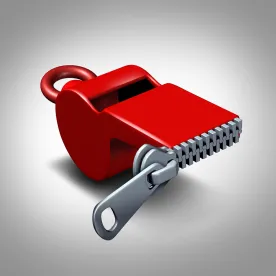On November 4, 2019, the SEC announced that it had filed an amended complaint against online auction portal Collectors Café and CEO Mykalai Kontilai, alleging Kontilai tried to prevent investors from communicating with the SEC in violation of Rule 21F-17. The SEC previously charged Collectors Café and Kontilai with fraudulently raising $23 million by making false statements to investors and instead misappropriating more than $6.1 million.
In the amended complaint, the SEC alleged that Collectors Café and Kontilai twice made attempts to stifle investors when those investors raised questions or concerns about the company’s conduct. In particular, the amended complaint alleged that when an investor questioned Kontilai in 2015, Kontilai arranged for the investors’ shares to be repurchased in an agreement that required a promise that the investor would not contact government or administrative agencies for purposes of starting an investigation into the company. The amended complaint further alleged that in 2017, two investors accused Kontilai of making material misrepresentations and omissions and brought a lawsuit to secure a return on their investment. According to the complaint allegations, Collectors Café, Kontilai, and the two investors later entered into a settlement agreement that included an agreement not to communicate with any regulatory agencies, specifically identifying the SEC. The SEC further alleged that once the investors spoke with the SEC, Collectors Café and Kontilai filed a lawsuit against them for violating the restriction in the settlement agreement.
Rule 21F-17, which was adopted by the SEC after the passage of the Dodd-Frank Act, prohibits company actions that impede individuals from reporting a possible securities law violation to the SEC. Unlike the rule in Dodd-Frank prohibiting whistleblower retaliation, this protection is not restricted to the employer-employee context, although it has been enforced against employers in the past. The rule first became effective in 2011 and the SEC brought its first action under the rule in 2015 (we reported on that action here). There has not been much activity around this rule in the last few years; a handful of enforcement actions were brought in 2016 and one was brought in early 2017.
This action appears to represent the SEC’s first public attempt to enforce Rule 21F-17 during the Trump administration.



 />i
/>i

